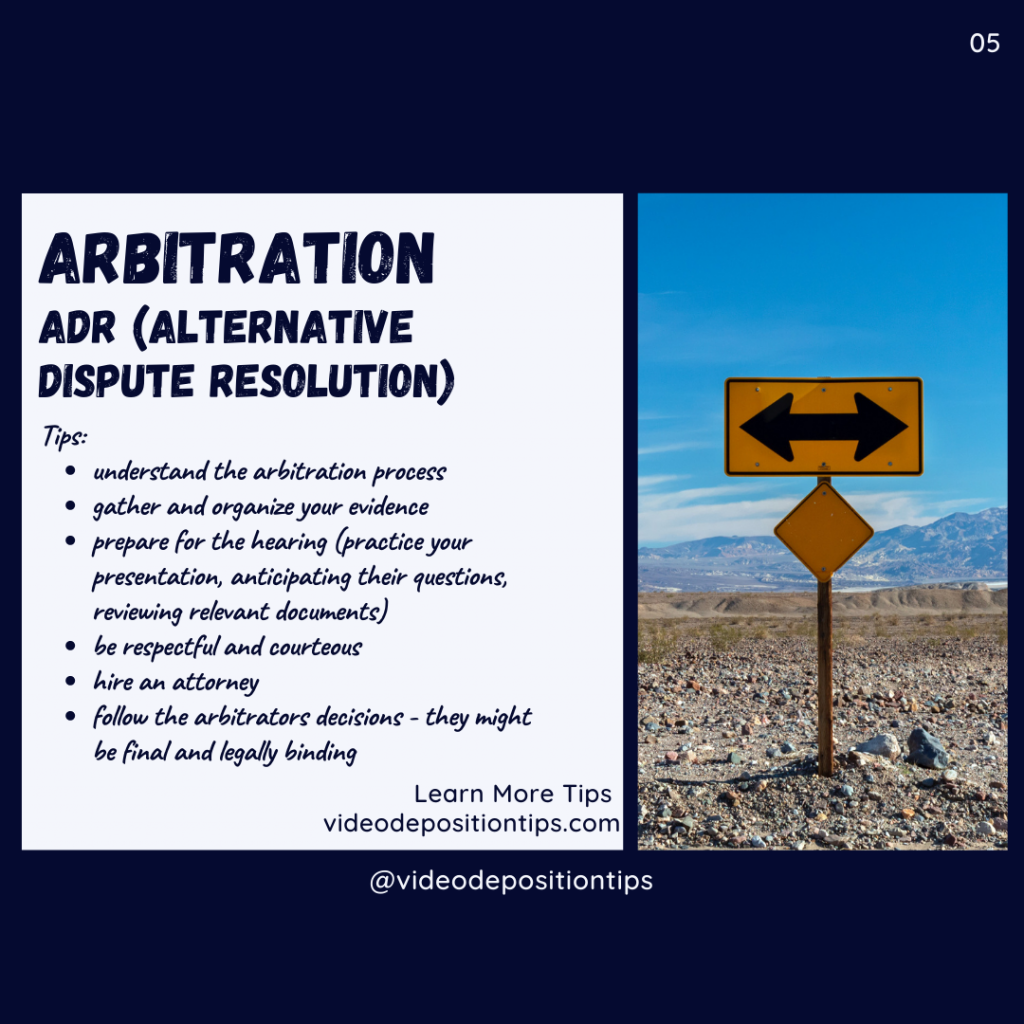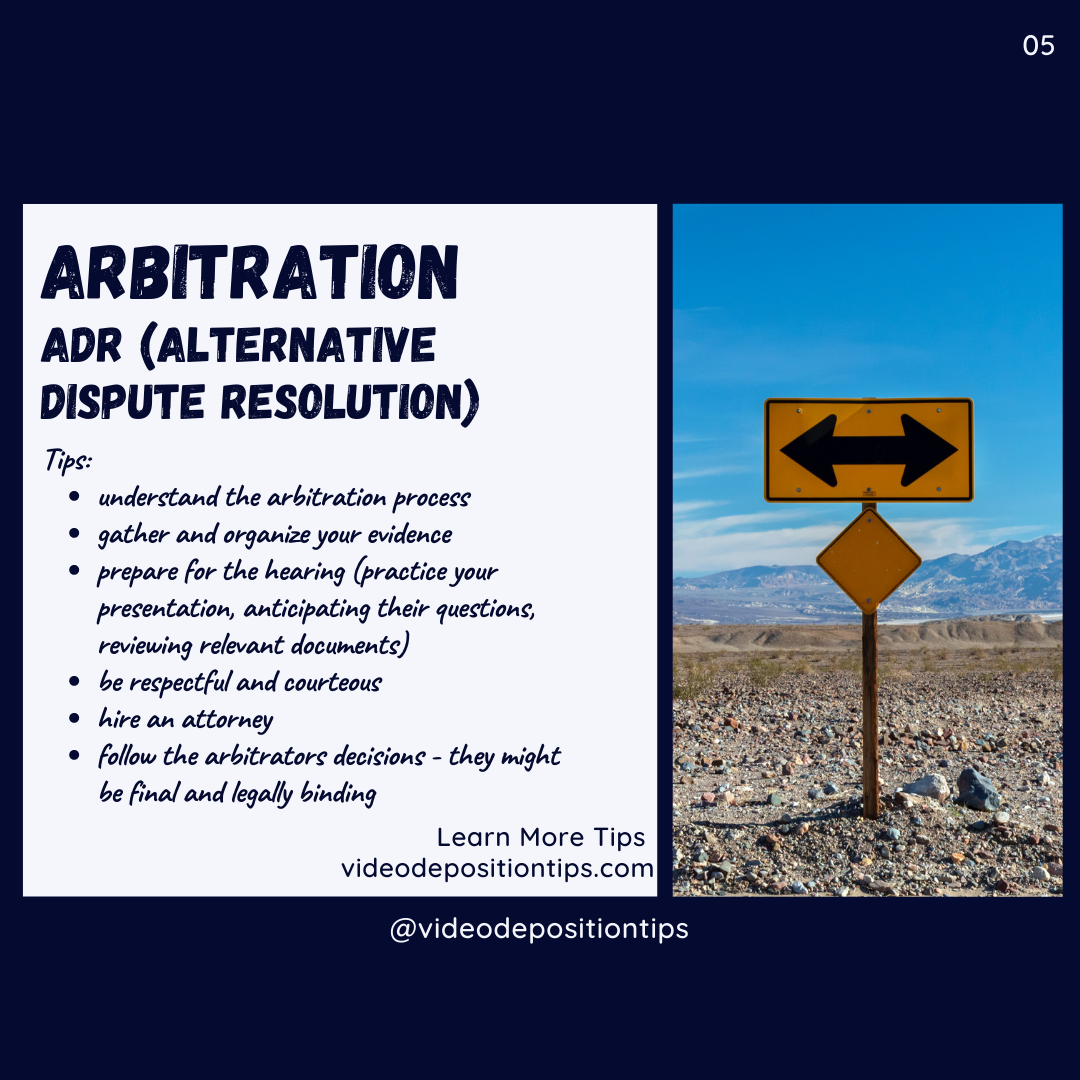If you’ve been called to mediation and are looking for some arbitration tips, here you’ll find some helpful resources tips (and tricks) to guide you through the arbitration process (aka ADR – alternative dispute resolution)
One quick tip before moving on, if you’re finding this website valuable then be sure to save this page or consider sharing it with someone you trust – who’s involved in this arbitration journey of yours.

What is arbitration and why is it important to the court system?
Arbitration is a process by which parties in a dispute agree to have their case resolved by a neutral third party, called an arbitrator, rather than by a judge or jury in a court of law. The arbitrator is typically a lawyer or other professional with expertise in the area of law related to the dispute.
There are several reasons why arbitration can be an important alternative to the court system. One reason is that arbitration can be faster and less costly than going to court. Because arbitration is typically a less formal process than a court case, it can be less time-consuming and expensive to participate in.
Another reason why arbitration is important is that it can provide a more private and confidential way to resolve disputes. In contrast to a court case, which is a matter of public record, arbitration proceedings are typically private and confidential, which can be important for parties who want to keep their dispute out of the public eye.
Finally, arbitration can be an effective way to resolve disputes because it allows the parties to choose an arbitrator who has expertise in the specific area of law related to the dispute. This can be particularly useful when the parties are involved in a complex or specialized legal matter.
Overall, arbitration is an important alternative to the court system that can provide a faster, less expensive, and more confidential way to resolve disputes.
What are some tips if you have to do arbitration on a lawsuit?
If you are participating in arbitration to resolve a lawsuit, here are some tips that may be helpful:
- Understand the arbitration process: It is important to have a clear understanding of how the arbitration process works, including the roles of the arbitrator and the parties, the rules that will apply, and the timeline for the proceedings.
- Gather and organize your evidence: Just as you would in a court case, it is important to gather and organize your evidence in support of your position. This may include documents, witness statements, and other relevant materials.
- Prepare for the hearing: Take the time to prepare for the arbitration hearing. This may include practicing your presentation, anticipating questions that may be asked, and reviewing any relevant documents or materials.
- Be respectful: Remember that you are in a formal legal setting, so it is important to be respectful and courteous to everyone involved in the case, including the arbitrator and any lawyers or witnesses.
- Consider hiring an attorney: Depending on the complexity of your case, it may be beneficial to hire an attorney to represent you in the arbitration proceedings. An attorney can provide legal advice and guidance, and can help you navigate the process.
- Follow the arbitrator’s decisions: The arbitrator’s decision is final and binding, so it is important to follow the terms of the arbitration award. If you disagree with the decision, you may have limited options for appealing or challenging it.
Overall, it is important to approach arbitration with a clear understanding of the process and a well-prepared case. By following these tips, you can increase your chances of a successful outcome.


